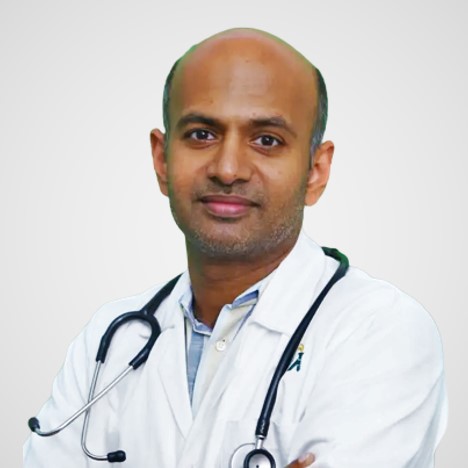ENT
ENT is a medical abbreviation for ear, nose, and throat. ENT mainly stands for various disorders affecting your ear, nose, and throat and related structures like your head and neck. The specialist doctor who treats ENT disorders is called an ENT specialist or an otolaryngologist. Various ENT disorders can affect your quality of life, so an ENT doctor in Hyderabad can diagnose and treat them effectively.

What are the types of ENT disorders?
Common ENT disorders include:
- Ear disorders include ear infections, hearing impairment, pain or ringing (tinnitus) in your ears or any condition that affects your hearing and balance.
- Nose disorders include any conditions that affect your breathing, smelling or appearance of your nose, nasal cavity or sinuses.
- Throat disorders include conditions affecting your eating, swallowing, digestion, speech, or singing.
- ENT-related conditions of your head and neck include any trauma, tumors, deformities of your head, face, or neck. This also includes cosmetic, reconstructive surgeries and managing problems with the nerves that control your facial movements, sight, hearing, and smell.
What are the symptoms of ENT disorders?
Some of the common symptoms of ENT disorders are as follows.
- Ear infection symptoms can cause wax, discharge, earache, hearing loss or balance issues.
- Nose infection causes runny nose or blocked nose, sneezing, and headaches in case it reaches your sinuses. Loss of the sense of smell and nose bleeds may also occur. Snoring or obstructive sleep apnea, which can result in difficulty in breathing, can also occur.
- Throat infection can cause sore throat, itchy throat, painful or difficult swallowing, and you may feel that the glands in your neck are swollen.
What are the causes of ENT disorders?
Bacteria and viruses mainly cause ENT disorders or infections. Though these causes might be the same, the way they affect the ear, nose and throat leads to varied symptoms. The common causes are as follows.
- Common cold virus
- Flu virus
- Infections from other parts of your body like your chest or airways that can spread to your ears
- Mumps and mononucleosis usually affect your throat. However, they can also spread to your ears.
- Streptococcus can cause Strep throat affecting your throat
When should you see a doctor for ENT disorders?
Although ENT infections are not very problematic, it is vital to consult an ENT doctor in Hyderabad to rule out the cause of your symptoms and treat the condition accordingly. You need to consult ENT doctors in Kondapur, if you are having severe symptoms. Symptoms that require medical attention are persistent hearing loss, sinus pain, ongoing nasal congestion, sore throat, and ringing in your ears. If you need further clarifications, you can search for ENT doctors in Kondapur, ENT Hospitals in Kondapur.
You can also request an appointment at Apollo Spectra Hospitals, Kondapur, Hyderabad.
Call 18605002244 to book an appointment.
What are the remedies/treatment for ENT disorders?
Most symptoms of ENT disorders are mild and should clear up in a few days. However, you must consult your ENT specialist to identify the correct treatment required as per your diagnosis. Some of the treatment modalities for ENT disorders are as follows:
- Dietary changes
- Medications like painkillers for pain or antibiotics for infections
- Surgical management may be required in certain ENT disorders like tonsilitis, glue ear, deviated nasal septum, tumor, etc.
- Simple home remedies for managing symptoms of ENT disorders, after consulting with your ENT specialist doctor, can also be done. These include warm compressions, decongestants, warm drinks, covering your ears, nose, and throat and keeping yourself warm.
Conclusion
ENT disorders affect your ears, nose or throat. ENT disorders may not trigger severe symptoms, but approach your doctor to find what is causing your symptoms. With appropriate medical care along with home remedies, your symptoms will start diminishing, and you will begin to feel better.
A deviated nasal septum, benign nasal polyps, and enlargement of the nasal turbinate are common causes of nasal obstruction.
A tonsillectomy (removal of your tonsils) is recommended when you suffer from more than seven tonsil infections in a year, more than five tonsil infections in a year for two years, or three tonsil infections for more than three years.
When your airway collapses or becomes blocked while sleeping, it leads to a pause in your breathing for a brief period or can lead to shallow breathing. This is called obstructive sleep apnea.
Our Doctors
DR. MOHAMMED NASEERUDDIN
MBBS, MS (ENT)...
| Experience | : | 8 Years Experience |
|---|---|---|
| Speciality | : | ENT, Head and Neck S... | Location | : | Kondapur |
| Timings | : | Mon - Sat : 11:00AM... |
DR. PUROHITHI P
MBBS, MD, IDRA, FIPM...
| Experience | : | 4 Years Experience |
|---|---|---|
| Speciality | : | Sr. Interventional P... | Location | : | Kondapur |
| Timings | : | Mon - Sat : 5:00 PM ... |
DR. CHINNAYA PARIMI
MBBS, FACS (Fellow, ...
| Experience | : | 19 Years Experience |
|---|---|---|
| Speciality | : | General Surgery & Ga... | Location | : | Kondapur |
| Timings | : | Mon - Sat: 9:30 AM t... |
DR. MOHAMMED NASEERUDDIN
MBBS, MS (ENT)...
| Experience | : | 8 Years Experience |
|---|---|---|
| Speciality | : | ENT, Head and Neck S... | Location | : | Kondapur |
| Timings | : | Mon - Sat : 11:00AM... |
Our Top Specialities
NOTICE BOARD
CONTACT US
CONTACT US
 Book Appointment
Book Appointment





.svg)
.svg)
.svg)
.svg)








